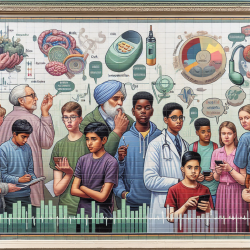The landscape of public health systems is vast and complex, often misunderstood or overlooked in favor of more immediate healthcare concerns. However, understanding these systems is crucial for practitioners aiming to improve their skills and contribute effectively to public health outcomes. This blog post will delve into the findings from a critical interpretive synthesis study on public health systems, offering insights into their unique roles and functions within the broader healthcare framework.
Defining Public Health Systems
Public health systems are distinct entities within health systems, characterized by their focus on population health rather than individual care. They encompass a range of governmental and non-governmental organizations that work collaboratively to ensure healthy social and physical environments. The research highlights that public health systems are not only about disease prevention but also about promoting overall community well-being through partnerships and communication.
The Role of Partnerships and Communication
A key finding from the research is the importance of partnerships in extending the reach of public health initiatives. These partnerships include collaborations with local government agencies, private sectors, academic centers, and community organizations. Effective communication is equally vital, ensuring that public health messages are clear, consistent, and timely. This is particularly important in emergency planning and response scenarios.
Frameworks for Public Health Systems
The study proposes a refined framework for understanding public health systems, incorporating governance, financial arrangements, delivery methods, and the critical role of partnerships. This framework helps practitioners conceptualize how public health fits within larger health systems and guides them in designing effective programs that meet community needs.
Implications for Practice
- Enhancing Skills: Practitioners can improve their skills by understanding the essential functions of public health systems and how they differ from traditional healthcare models.
- Promoting Integration: By recognizing the complementary roles of public health and healthcare systems, practitioners can advocate for more integrated approaches that address both individual and population health needs.
- Encouraging Research: The study identifies gaps in current knowledge about public health systems, highlighting areas where further research can contribute to more effective practice.
Future Research Directions
The study suggests several areas for future research, including exploring how public health systems can better integrate with healthcare services to provide seamless service delivery. It also calls for more research into financial arrangements within public health systems to ensure sustainable funding models.
Conclusion
Understanding public health systems is essential for practitioners who wish to enhance their practice and contribute to better population health outcomes. By embracing the frameworks and insights provided by recent research, practitioners can play a pivotal role in shaping the future of public health.
To read the original research paper, please follow this link: Defining and classifying public health systems: a critical interpretive synthesis.










